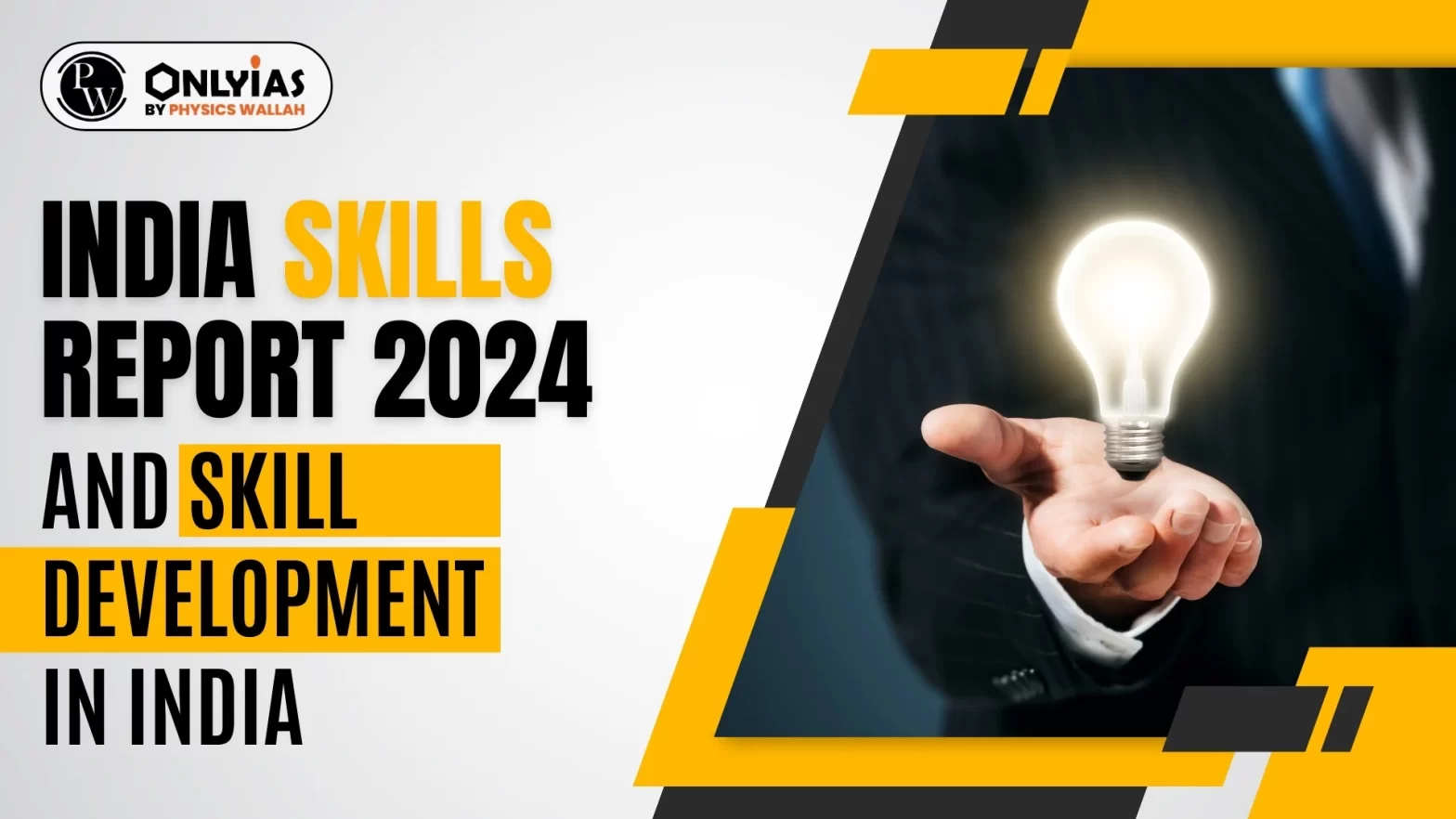Context: This article is based on an Editorial “India Skills Report finds Kerala the most preferred State to work” which was published in the Hindu. The talent assessment agency Wheebox recently unveiled India Skills Report 2024: “Impact of AI on the Future of Work, Skilling & Mobility”.
Key Highlights from the India Skills Report 2024
- State of Employability in India: It has improved with 51.25% of the assessed youths found to be employable with the required skills.
- State with Maximum Employability: Telangana has the highest concentration of employable talent in the age group of 18-21 where 85.45% were found employable.
- Computer Skills: Thiruvananthapuram claimed the first position among cities for nurturing computer skills while Kerala came third overall among States.
- Skill Penetration: India stands in first position in AI skill penetration and talent concentration.
- Increase in Female LFPR: There is a consistent increase in female labor force participation (LFPR), fostering healthy competition and gradually correcting gender imbalances across societal and cultural realms.
- LFPR is defined as the percentage of persons in the labour force (i.e. working or seeking or available for work)in the population.
Must Read: Periodic Labour Force Survey (PLFS) Annual Report 2022
Transformative Impact of Artificial Intelligence (AI) on India’s Workforce:
- AI Skills: With an installed talent base of 416K AI professionals as of August 2023, the nation is well positioned to meet the current demand of approximately 629K.
- The Indian AI industry is projected to reach USD 28.8 bn by 2025, with a CAGR of 45%.
- Escalating demand for AI professionals in India: There is a 14-fold increase in AI-skilled individuals within the country from January 2016 to June 2023.
- Skill Penetration: India has a relative AI skill penetration three times the global average.
- AI Skill Gap: India currently has a 60% to 73% gap between demand and supply in crucial roles.
|
Skilling Efforts by India
- Pradhan Mantri Kaushal Vikas Yojana (PMKVY)
- Skill India Mission
- National Skill Development Corporation (NSDC)
- National Skill Development Mission (NSDM)
- Skill Acquisition and Knowledge Awareness for Livelihood Promotion (SANKALP)
- Sector Skill Councils (SSC)
- National Migration Policy (NMP)
|
Challenges with Skill Development in India
- Skill Gap: In India, there exists an enormous skill gap between the demand from industries and the skillset of the young people acquired through education and training.
- Skills Mismatch: There is a lack of industry-faculty interaction because of which the skill sets provided by the educational and training institutes suit the employers’ requirements.
- As a result, though the people may be skilled but they do not get employment.
- Informal Workforce: Over 90% of India’s workforce is in the informal sector.
- According to researchers at the NCAER, India is trapped in a vicious cycle where informality of the workforce leads to lower incentives to acquire new skills.
- Poor Quality of Skill Training: The Government skill programs suffer from no training centres to poor training, no certification, no placement or forced placement, lack of trainers, and no assurance of a decent wage for those trained.
- Poor Industrial Linkage: It results in a lack of understanding of the current demands and trends. This gap prevents the alignment of curriculum with the practical needs of the job market.
Way Forward
- Government, Academia, and Corporate Sector Collaboration: It will help design and implement comprehensive skill development programs, promote employee skill development, and create a talent pool per the industries’ requirements.
- Promoting Vocational Education and Apprenticeship Programmes: These initiatives can align the curriculum with the specific needs of the infrastructure sector by engaging with educational institutions and industry experts.
- Promoting Consultancy Sector: Engaging experienced professionals in consulting roles will enhance project efficiency and quality.
- Upskilling and Reskilling the workforce: There should be an emphasis on upskilling the existing workforce to adapt to the changing technological landscape.
- Career Counseling: Setting up career counseling and guidance in secondary schools to provide the necessary exposure to students to vocational education at an early age.
- Awareness Creation: Raising awareness and engaging students in emerging technologies such as automation, Artificial Intelligence, data analytics, robotics, etc.
- Integration of distance and regular education: It will provide flexibility and wider access to learners from diverse backgrounds based on their preferences and requirements.
Conclusion
The India Skills Report 2024 highlights the positive trends in employability, particularly in AI, while emphasizing the need for concerted efforts to bridge skill gaps through collaborative initiatives and a holistic approach to skill development in India.
![]() 23 Dec 2023
23 Dec 2023
